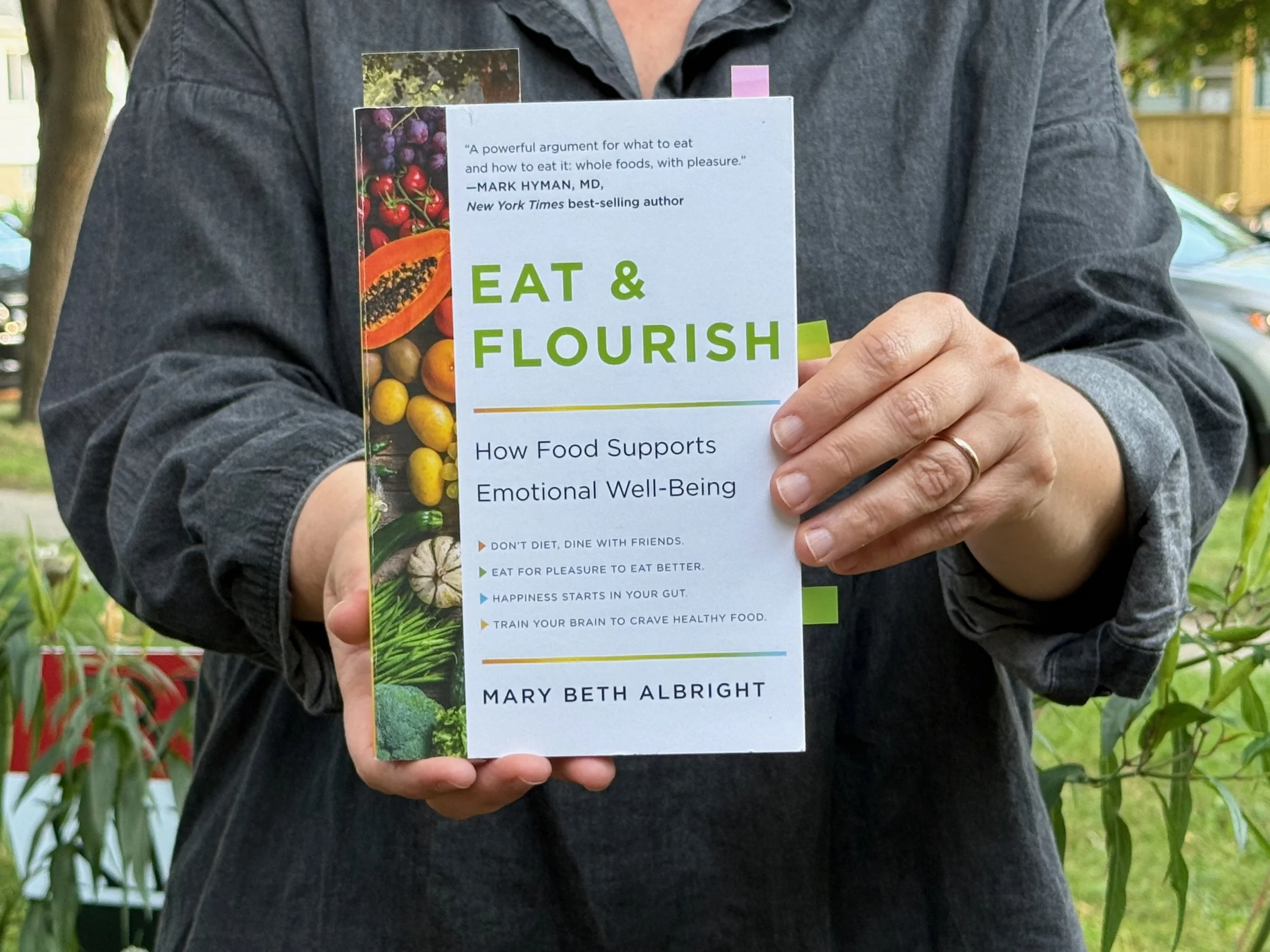
Blog

Book Review: “Eat & Flourish: How Food Supports Emotional Well-Being”
As someone who has wrestled with emotional eating most of my life, I was skeptical of yet another book promising to solve our food-mood mysteries. But Albright delivers something refreshingly different: rather than peddling the same tired morality tales about "good" and "bad" foods that have kept us trapped in cycles of shame for generations, she dives deep into the emerging field of nutritional psychiatry to show us how eating actually works in our brains and bodies.

Food Was Love, Security, and the Only Acceptable Vice: Understanding My Emotional Eating Story
You might think that because I’ve written about food, eating, nutrition, and emotional and mental health, I have this area of my life well in hand. The truth is sometimes I do and sometimes I don’t. Our relationships with food are complicated. Here’s the story of mine.

A Therapist’s Guide to Eating for Better Mental and Emotional Health
As a therapist, I've witnessed how eating patterns impact my clients' emotional wellbeing and their ability to cope with the ups and downs of their lives. Understanding this food-mood connection can help you recognize how nourishing your body can become a powerful tool for supporting your mental health and emotional balance.

The Gut-Brain Connection: Why Digestive Health Matters in Therapy
Emerging research reveals that the gut-brain axis is a complex communication network linking our gastrointestinal tract and central nervous system. It plays a crucial role in emotional regulation, cognitive function, and overall mental wellbeing. For therapists and clients alike, understanding this connection opens new pathways for healing and therapeutic success.